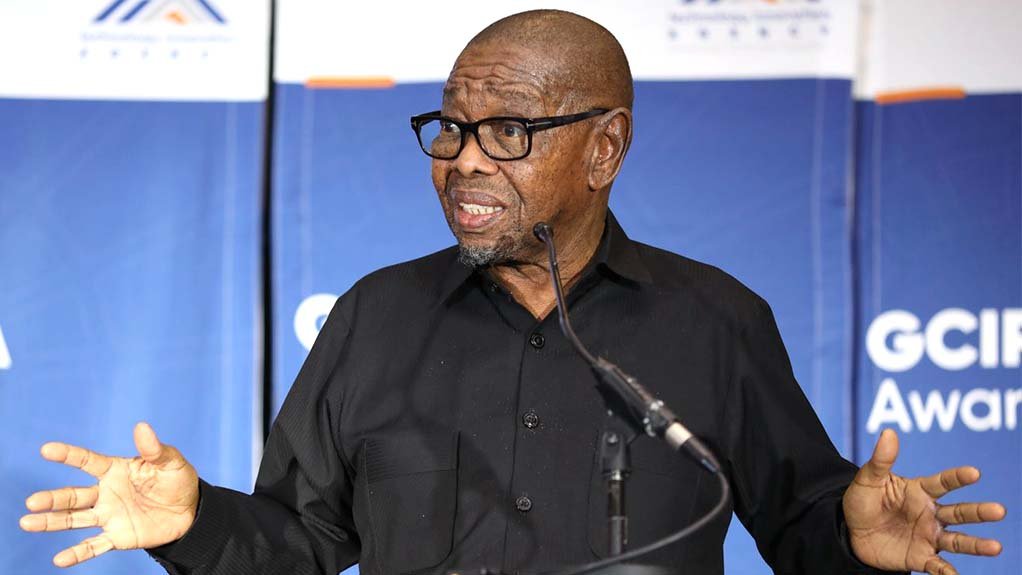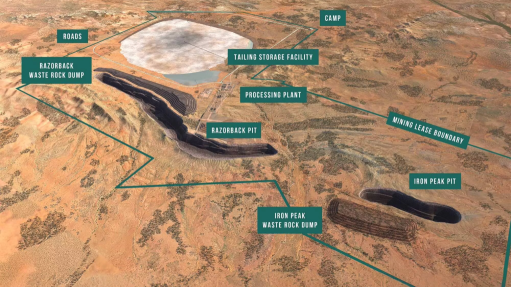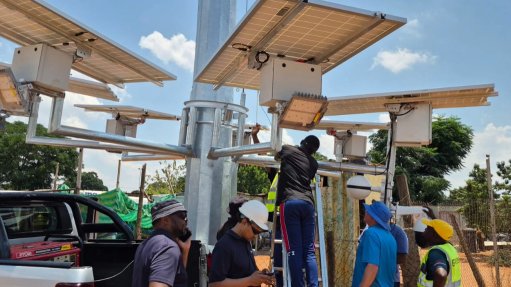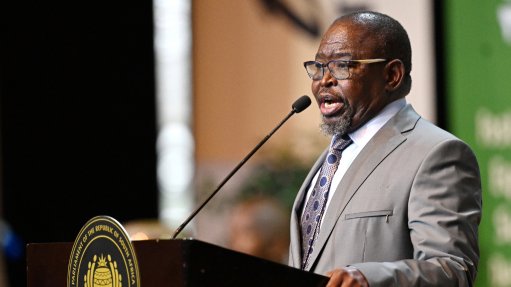Underfunding a grave concern in this year’s DSTI budget allocation
The Department of Science, Technology and Innovation (DSTI) has received an allocation of R9.06-billion for 2025/26, which adds to a consolidated government expenditure on innovation, science and technology across all departments of R20.2-billion.
The department intends to spend R435-million on administration, R1.6-billion on technology innovation, R152-million on international cooperation and resources, R5.1-billion on research, development and support and R1.6-billion on socioeconomic innovation partnerships.
Transfers and subsidies will account for the majority of the budget, at R8.3-billion.
Some priorities highlighted by Science, Technology and Innovation Minister Blade Nzimande include R1.7-billion that will be spent on the MeerKAT/Square Kilometre Array Radio Telescope, in the Northern Cape; the South African Research Infrastructure Roadmap; and the National Integrated Cyberinfrastructure System.
About R2.9-billion will be dedicated to postgraduate development and research support, while R3.8-billion will go towards providing access to innovative research infrastructure.
Nzimande said the department was focusing on embedding a new strategic framework to increase the integration of AI in its operations, as well as to work with the Department of Tourism on an astro-tourism strategy.
Notably, the DSTI aims to support between 10 and 15 venture capital funds through the Technology Innovation Agency (TIA).
The Minister confirmed that he is awaiting a report from a working group within the department to assess the impact of US funding being withdrawn from South African research projects and would report on those findings in due course.
Given that the department’s budget allocation has decreased by a further R377-million in 2025/26, following another decrease of R1.4-billion in the prior year, National Treasury has urged the DSTI to consider public-private partnerships (PPPs) for more funding, particularly in respect of the R570-million needed by the South African National Space Agency (Sansa) for its satellite build and launch capability.
The DSTI is only able to allocate R420-million and R166-million in transfers to the TIA and Sansa in 2025/26, respectively.
The lion’s share of the budget, under Programme 4 for research, development and support, is allocated to the Academy of Science of South Africa (R33.4-million) and the National Research Foundation (R3.4-billion), as well as R301-million for the Council for Scientific and Industrial Research (CSIR).
However, the CSIR is also allocated R971-million under the department’s socioeconomic innovation partnerships, or Programme 5, for the 2025/26 financial year.
Nzimande reiterated the DSTI’s goal of taking science, technology and innovation to all corners of the country by strengthening coordination and upgrading key science infrastructure.
He said the budget remained aligned with the department’s 2025 to 2030 strategic plans, which characterised science, technology and innovation as crucial for accelerating economic transformation and improving the country’s global competitiveness.
During the National Assembly’s vote on the DSTI budget for 2025/26, all parties bemoaned the lower allocation given to the department despite the critical role science and innovation plays in all sectors of the economy to create jobs and grow small businesses.
In particular, the uMkhonto weSizwe Party rejected the budget owing to its “betrayal of the national imperative of inclusive and innovation-led growth” and it not focusing enough on narrowing the digital divide in rural communities. The party also said the budget relied too much on public-private partnerships (PPPs) and that no credible monitoring system was in place in respect of the DSTI’s key performance indicators.
For the Democratic Alliance, the budget ought to catalyse growth in marginalised communities and do away with inhibiting factors to uplift researchers and businesses. The party advocated for more investment in science, technology, engineering and maths education in schools and for more empowerment of universities.
The Economic Freedom Fighters warned that cuts to research grants could lead to a loss of scientific talent and resources in an environment where black scientists continued to be underrepresented in key fields.
For ActionSA, the budget was full of “contradiction and not transformation” and undermined South Africa’s scientific capability. The party also stated there was unaddressed misfunction in government entities such as the TIA that ought to be investigated and remedied.
The African Christian Democratic Party also rejected the budget owing to its limited rural impact and gross underinvestment on science and innovation as a percentage of GDP, which was at 0.6%.
Other parties such as Inkatha Freedom Party, Freedom Front Plus and African National Congress accepted the budget and its sentiments, acknowledging that “more has to be done with less” and that entities such as the CSIR were capable of generating own revenue, which more entities should improve on.
In response, Nzimande affirmed that the DSTI was doing its best to address underfunding, particularly through PPPs and partnerships with international institutions. “I am going to engage Treasury on a comprehensive proposal, as well as the Industrial Development Corporation, to set aside more funds for science, technology and innovation. We will also strengthen the TIA to act more as a catalyst for accessing outside funds.
“Those that dismiss the budget owing to underfunding should rather help us to garner more,” Nzimande concluded.
Article Enquiry
Email Article
Save Article
Feedback
To advertise email advertising@creamermedia.co.za or click here
Press Office
Announcements
What's On
Subscribe to improve your user experience...
Option 1 (equivalent of R125 a month):
Receive a weekly copy of Creamer Media's Engineering News & Mining Weekly magazine
(print copy for those in South Africa and e-magazine for those outside of South Africa)
Receive daily email newsletters
Access to full search results
Access archive of magazine back copies
Access to Projects in Progress
Access to ONE Research Report of your choice in PDF format
Option 2 (equivalent of R375 a month):
All benefits from Option 1
PLUS
Access to Creamer Media's Research Channel Africa for ALL Research Reports, in PDF format, on various industrial and mining sectors
including Electricity; Water; Energy Transition; Hydrogen; Roads, Rail and Ports; Coal; Gold; Platinum; Battery Metals; etc.
Already a subscriber?
Forgotten your password?
Receive weekly copy of Creamer Media's Engineering News & Mining Weekly magazine (print copy for those in South Africa and e-magazine for those outside of South Africa)
➕
Recieve daily email newsletters
➕
Access to full search results
➕
Access archive of magazine back copies
➕
Access to Projects in Progress
➕
Access to ONE Research Report of your choice in PDF format
RESEARCH CHANNEL AFRICA
R4500 (equivalent of R375 a month)
SUBSCRIBEAll benefits from Option 1
➕
Access to Creamer Media's Research Channel Africa for ALL Research Reports on various industrial and mining sectors, in PDF format, including on:
Electricity
➕
Water
➕
Energy Transition
➕
Hydrogen
➕
Roads, Rail and Ports
➕
Coal
➕
Gold
➕
Platinum
➕
Battery Metals
➕
etc.
Receive all benefits from Option 1 or Option 2 delivered to numerous people at your company
➕
Multiple User names and Passwords for simultaneous log-ins
➕
Intranet integration access to all in your organisation




















